A poor or bad credit score makes it unlikely that you will easily qualify for a regular credit card.
While you may want to avoid credit cards if you tend to misuse them and overspend, paradoxically, a credit card or other credit facility is required to help you rebuild your credit rating.
Borrowers with bad credit are not without options. There are secured and unsecured credit cards you can qualify for depending on your financial history, credit score, and ability to put down a deposit that serves as collateral.
This post covers the best secured credit cards you can apply for in Canada, including the Neo Secured Card and Home Trust Secured Visa.
Top Secured Credit Cards in Canada
These are the top secured and guaranteed approval credit cards available to Canadians.
Neo Financial Secured Mastercard
- Annual fee: $0
- Cash back rewards: Up to 5% cash back
- Welcome offer: $25 signup bonus
- Interest rate: 19.99% – 29.99% on purchases; 22.99% – 31.99% on cash advances
- Security deposit: starts at $50
- Credit limit: Dependent on your security deposit
The Neo Secured Card is the best secured credit card in Canada.
It doubles up as a cash back credit card, offering an average of 5% unlimited real cash back when you shop at thousands of stores across Canada.
If you are looking for a no-fee secured card, this is it.
Even better, approval for this card is guaranteed, and you only need $50 to get started on your way to growing your credit score.
Neo Financial customers can access a free app and a virtual card they can add to their favourite payment wallets.
And you can redeem cash back earnings towards your statement balance at any time. Learn more about what it offers in this review.
Neo Secured Credit
Rewards: Get an average of 5% cash back at 10,000+ locations.
Welcome offer: Up to 15% welcome bonus cash back on your first-time purchases; $25 cash bonus.
Interest rates: 19.99% – 29.99% for purchases; 22.99% – 31.99% for cash advances.
Annual fee: $0
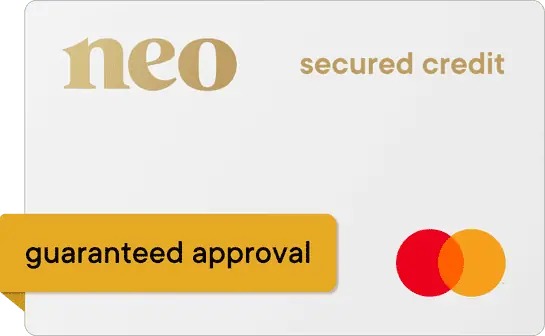
KOHO Prepaid Mastercard
- Annual fee: $5 to $10/month for the Credit Building product (plus account fees if applicable)
- Welcome offer: $20 bonus when you complete your first purchase (use code CASHBACK during signup)
- Interest rate: N/A
- Security deposit: $30 to $500
- Credit limit: N/A
The KOHO Prepaid Mastercard is a reloadable prepaid card you can use to build your credit history if you subscribe to its credit-building add-on.
This card has a low security deposit requirement, ranging from $30 to $500, so you can add any funds you want. Your repayments are reported to a credit bureau and can help improve your credit score. The KOHO Card also offers up to 5% cash back on your purchases, which can more than pay for the fees.
With a KOHO Essential account and payroll direct deposit setup, KOHO users can access 0% APR cash advances of up to $250.
You can sign up for Credit Building here.
KOHO Prepaid Mastercard
Rewards: Earn 1% cash back on groceries and transportation, up to 5% unlimited cash back at partner stores in Canada. Get 5% interest on your entire balance. Users also get access to a free budgeting app, 0% APR cash advances and free credit score checks.
Welcome offer: $20 sign up bonus after first purchase (use CASHBACK promo code during sign-up)
Interest rate fee: N/A
Annual fee: $0*
Home Trust Secured No-Fee Visa
- Annual fee: $0
- Interest rate: 19.99% purchases and cash advances
- Security deposit: $500 – $10,000
- Credit limit: $500 – $10,000
The Home Trust Secured No-Fee Visa is a no-fee secured credit card with an approval rate above 95%.
If you are looking for a credit card that can help you repair or rebuild your credit, this card works, and approval is almost guaranteed unless you are currently in bankruptcy.
Home Trust Secured Visa
Rewards: Earn points you can redeem for cash.
Interest rates: 14.90% on purchases; 19.80% on cash advances.
Annual fee: $59.
Credit limit: $500 to $10,000.
Credit score required: Poor or bad credit score.
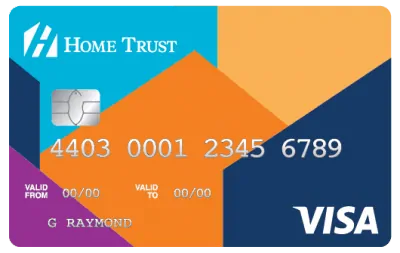
Home Trust Secured Visa
- Annual fee: $59
- Interest rate: 14.90% purchases, 19.80% cash advances
- Security deposit: $500 – $10,000
- Credit limit: $500 – $10,000
The Home Trust Secured Visa annual fee card is different from its no-fee counterpart in that it offers a lower interest rate of 14.90% on purchases.
You can be approved for a credit limit as high as $10,000, and approval rates exceed 95%.
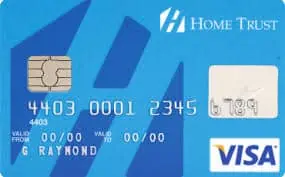
Capital One Guaranteed Secured Mastercard
- Annual fee: $59
- Interest rate: 19.80% purchase AIR
- Security deposit: $75 – $300
- Credit limit: $300 – $2,500
The Capital One Guaranteed Secured Mastercard is one of the easiest secured credit cards to qualify for in Canada as long as you:
- Are at least the age of the majority in your province or territory of residence
- Have not applied for a Capital One account more than once in the last 30 days
- Don’t have an existing Capital One application
- Can provide the required security deposit
This card allows you to increase your credit limit to $2,500 if you can provide the collateral.
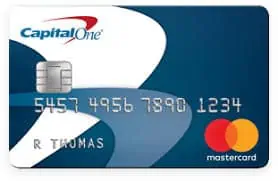
Scotiabank Value Visa
- Annual fee: $29
- Interest rate: 12.99% purchases (0% promo rate for balance transfers for 6 months)
- Credit limit: Minimum of $500
If you have a fair or better credit score or are a newcomer to Canada, the Scotiabank Value Visa is worth checking out.
It offers a lower interest rate of 12.99% on purchases and cash advances, and you can also take advantage of the promotional 0.99% balance transfer rate for 6 months.
This card also offers up to a 25% discount when you use it to pay for car rentals at participating Avis or Budget locations.
Learn more about the card in our review.
Scotiabank Value Visa Card
Rewards: Save up to 25% off car rental rates at AVIS and Budget car rental locations.
Welcome offer: 0% balance transfer for 10 months; the annual fee is waived in the first year.
Interest rates: 12.99% on purchases and cash advances.
Annual fee: $29
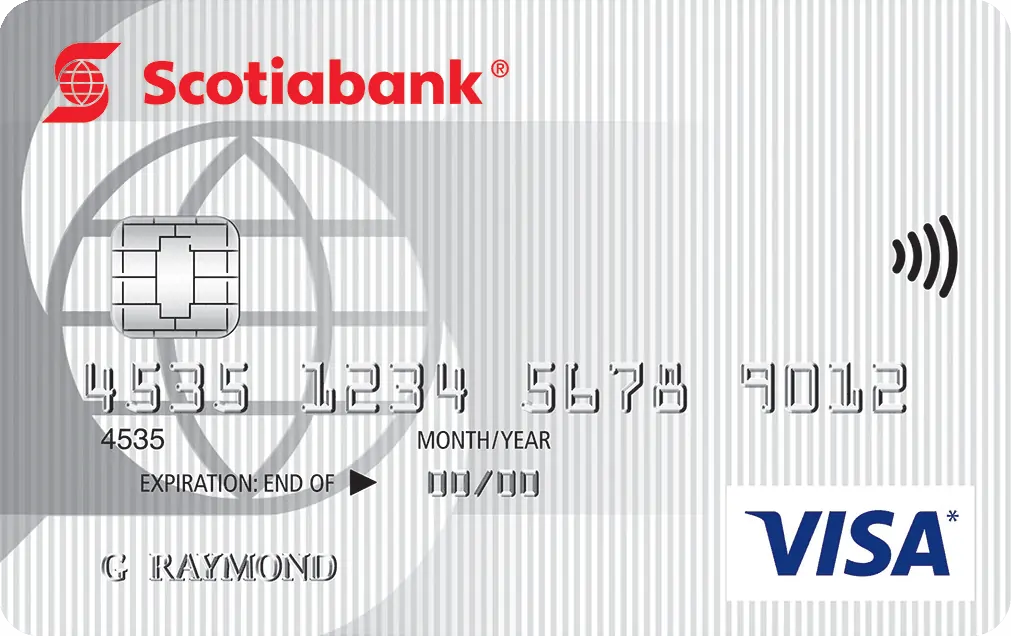
Methodology:
Savvy New Canadians rates the best credit cards based on their annual fees, interest rates, welcome bonuses, rewards, top features, categories, insurance coverage, and other perks. We carefully evaluate each credit card and place more weight on the value of the long-term rewards it offers. Only credit cards we would personally use are recommended. Visit the credit card issuer’s website using the links to confirm each product’s terms and conditions before applying.
Best Secured Credit Cards in Canada Summary
| Credit card | Annual fee | Interest rate | Security deposit | Credit limit |
| Neo Financial Secured Mastercard | $0 | 19.99% – 24.99% on purchases; 21.99% – 26.99% on cash advances | $50 or more | Dependent on security deposit |
| Home Trust Secured No-Fee Visa | $0 | 19.99% on purchases and cash advances | $500 – $10,000 | Dependent on security deposit |
| KOHO Prepaid Mastercard | $5 to $10/month | 0% | N/A | N/A |
| Scotiabank Value Visa | $29 | 12.99% on purchases | N/A | Minimum of $500 |
| Home Trust Secured Visa | $59 | 14.90% on purchases; 19.80% on cash advances | $500 – $10,000 | Dependent on security deposit |
| Capital One Guaranteed Secured Mastercard | $59 | 19.80% on purchases; 21.90% on cash advances | $75 – $300 | $300 – $2,500 |
What is a Secured Credit Card?
A secured credit card is different from a traditional credit card in that you are required to provide a security deposit (or collateral) to protect the lender if you default on your payments.
This refundable deposit is held in a savings account and is typically equal to your credit limit.
Secured credit cards are not only suitable for people who are trying to repair their credit scores. In some cases, individuals without a credit history (e.g. newcomers to Canada and foreign students) may also use them to build or establish a credit rating.
My first credit card in Canada as a student was a secured credit card from RBC. If you are a permanent resident, you can usually qualify for a regular credit card.
A poor credit score is 650 and below. If you do not know what your credit score is, you can find out here for free.
How Secured Credit Cards Work
Other than the fact that you will need to put down a deposit, a secured credit card is very similar to a standard credit card.
The card issuer reports your credit activity to the credit bureaus, which will raise your credit score if you pay your balance in full and on time each month.
Usually, your security deposit will match your credit limit. The minimum security deposit is typically around $300 to $500, but some credit cards, like the Neo Financial Secured Mastercard, allow you to deposit anything over $50.
Most secured credit cards do not offer rewards or extra perks, as the main aspect of the card is to build your credit.
Some credit card companies allow you to switch to an unsecured credit card if you consistently pay off your balance on time each month.
Others do not have this feature, so you’ll have to apply for another credit card, then close the secured card. Upon closing, your security deposit is returned to you.
The other credit card types you can take a look at if you are trying to pay off your credit card debt or consolidate it are:
Unsecured credit cards: You won’t have to put down a deposit; however, your credit score has to be at least in the fair to good category. An example is the Scotiabank Value Visa.
Balance transfer credit cards: These cards allow you to consolidate your credit card debt on one card at a lower interest rate. Here are the top balance transfer cards in Canada.
Low-Interest rate credit cards: These cards offer a lower purchase and/or balance transfer AIR and are great for saving on interest fees.
Prepaid credit cards: These cards do not impact your credit score; however, they provide many of the conveniences that come with regular credit cards and are widely accepted for payments and other transactions. Read more about them here.
Secured vs Unsecured Credit Cards
Secured credit cards are easy to apply for, even if your credit score is not great. They require a security deposit, typically between $200 to $500. This deposit is typically your credit limit, and it is a form of collateral in case you cannot pay off your credit card balance.
Like unsecured credit cards, secured cards build your credit by reporting your monthly payments to the credit bureaus. To raise your credit score the fastest, you should keep your balance below 30% of your total credit limit and pay it off in full each month.
When you close your secured credit card, the security deposit is returned to you. Depending on the bank, you may have the option to upgrade to an unsecured credit card.
Unsecured credit cards have more features and benefits than secured credit cards.
You need a good to excellent credit score (at least 660) to qualify for most unsecured credit cards. Sometimes, your personal or household income will need to reach a certain threshold to qualify.
How To Apply For a Secured Credit Card
Almost everyone is eligible for a secured credit card, no matter their annual income or credit score. These credit cards are meant for those new to the country, students, or those looking to increase their credit scores.
Generally, you will need to be a Canadian resident, the age of majority in your province or territory, and provide a security deposit to activate the credit card (typically around $200 to $500).
Banks That Offer Secured Credit Cards
Here’s an overview of the banks and online financial institutions in Canada that offer secured credit cards:
| Bank | Credit card |
| Neo Financial | Neo Financial Secured Mastercard |
| Home Trust | Home Trust Secured No-Fee Visa, Home Trust Secured Visa |
| Capital One | Capital One Guaranteed Secured Mastercard |
| Refresh Financial | Refresh Financial Secured Credit Card |
Advantages of Secured Credit Cards
Secured credit cards are easy to apply for, and they are one of the best ways to improve your credit score quickly. Most financial institutions will accept your application, no matter your credit history or annual income.
In most cases, the security deposit for a secured credit card is your credit limit, which means you’ll be less likely to overspend.
It is rare, but some secured cards, like the Neo Financial Secured Mastercard, offer cash back or other rewards.
Disadvantages of Secured Credit Cards
Secured credit cards require a security deposit, typically from $200 to $500. If you don’t have that money right away, you cannot open a secured card.
Most times, your credit limit is your security deposit. This is different from an unsecured credit card in that you cannot spend more than you have already deposited.
You need to ensure that you can pay off your balance in full each month. If you don’t, your credit score will not improve as quickly. There may be no point in getting a secured credit card if you tend to carry a balance.
Lastly, secured credit cards do not offer many benefits or perks that unsecured credit cards do. You generally cannot collect points, cash back, or other rewards.
Conclusion
A secured credit card only serves its purpose of helping you establish, rebuild or repair your credit rating if you use it responsibly.
Plan to pay your balance fully and on time within the grace period. After your credit score has improved, you can easily apply for a standard credit card and withdraw the deposit you give to the bank.
If what you are looking for is a bad credit personal loan, click here for options.
You can also apply for a prepaid credit card with a credit-building service. The best prepaid card in this category is the KOHO Prepaid Mastercard.
Best Secured Credit Cards in Canada FAQs
Yes, a secured credit card can help increase your credit score like a regular credit card. The credit card company reports your credit history to the credit bureaus, and if you are making payments on time and using your card responsibly, a secured card can be great for building and rebuilding credit.
The top secured credit card in Canada is the Neo Financial Secured Credit Card. This secured credit card has no annual fees, and users earn cash back when they make purchases.
Secured credit cards are not commonly offered or advertised by Canada’s largest banks. That said, you may qualify for one if you apply for a credit card and do not have a sufficient credit history. You can learn about the secured credit cards offered by RBC, BMO, TD, and CIBC.
Yes, you can deposit $500, $1,000, or more as security funds for your secured credit card. Your security deposits determine your credit limit.
Typically, it takes 2 months or longer after you start using a secured credit card to start increasing your credit score. This is provided you do not max out the card and pay your balance in full each month.
Secured credit cards should not hurt your credit. Ensure you pay your balance in full when you’re supposed to, and your credit should be improved, not hurt. Also, some issuers do not perform a hard credit check when you apply for a secured card.
There are several different things to take into account when trying to increase your credit score from 600 to 700. Are you building your credit score for the first time? Do you have negative items on your credit report? It depends, but it usually takes around 3 months for your credit score to bounce back after you close a credit account or have missed a payment.

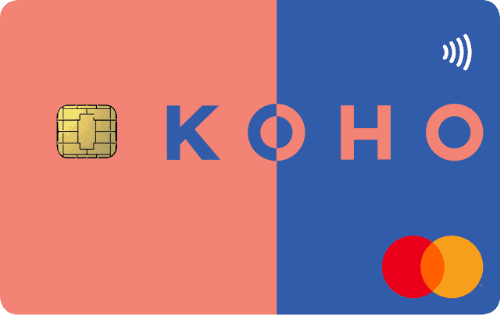
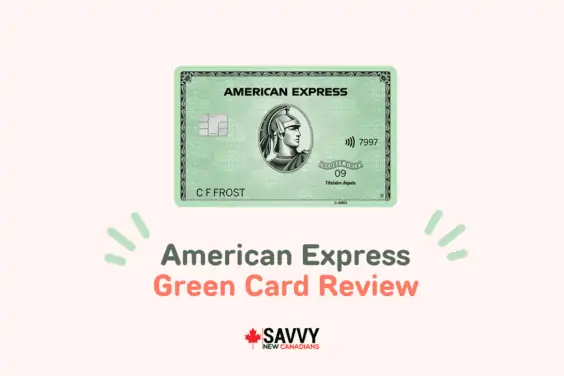
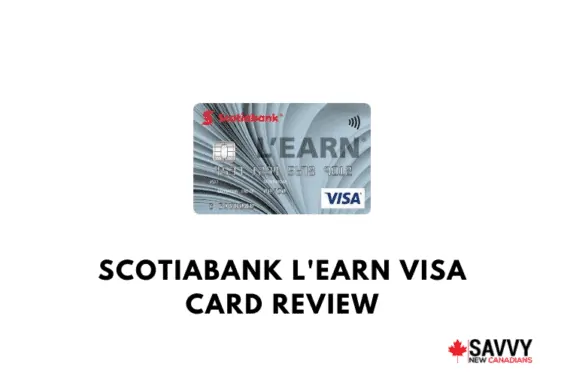
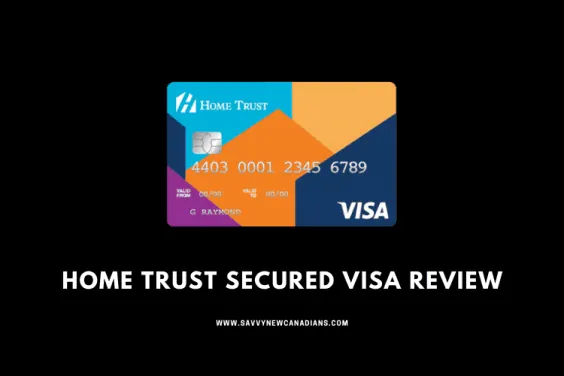
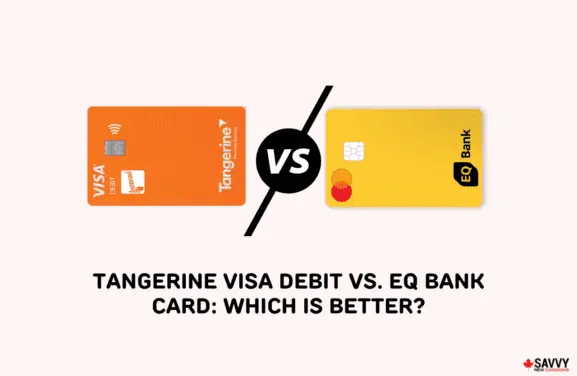
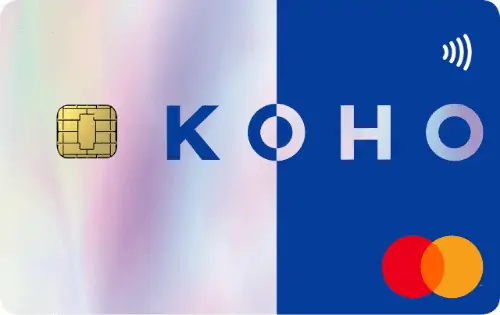
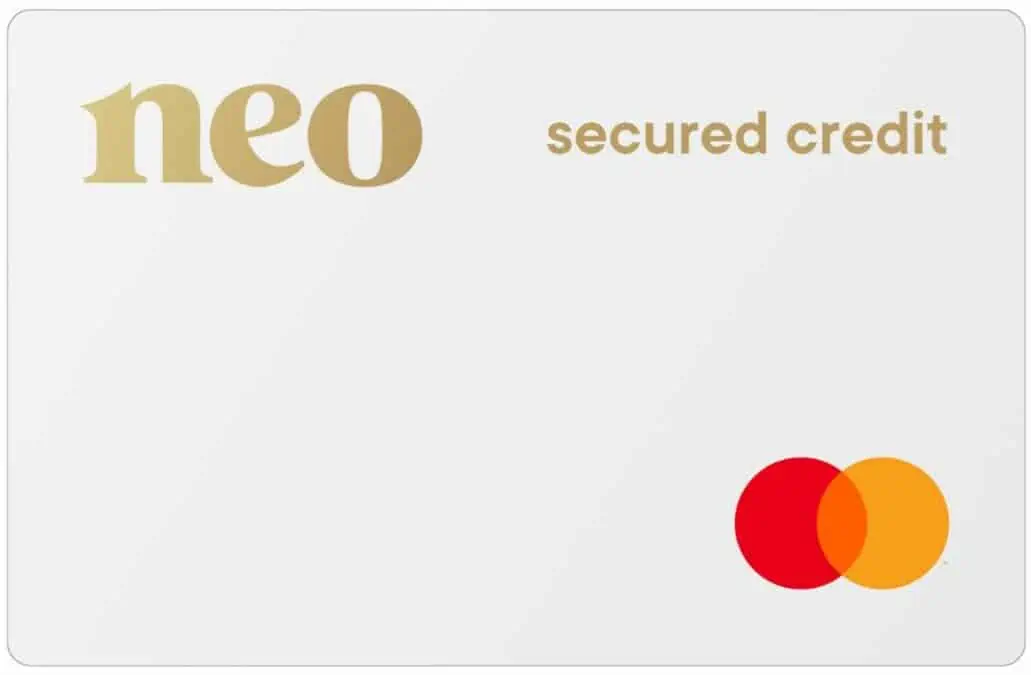
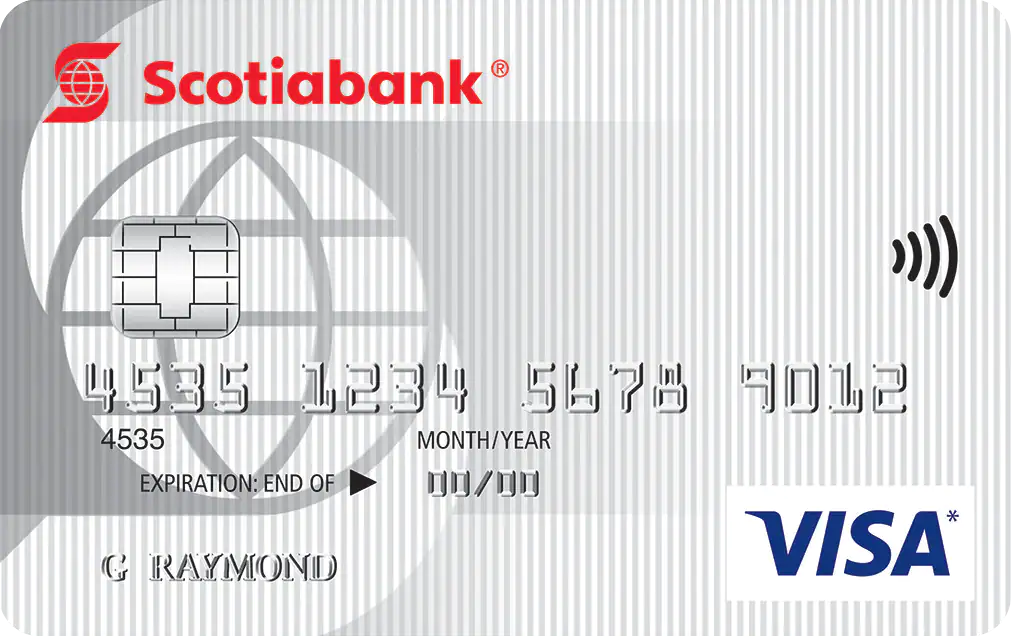
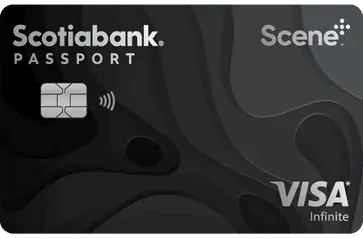
I would also encourage others to speak with their credit union. My local credit union, Vancity, offers all of their Visa cards in secured versions. If you’re a BC resident, I highly recommend looking into their no-fee Enviro Visa Classic. It provides 0.5% cashback, extended warranty and lets you keep the deposit in an interest-bearing GIC or savings account.
The Scotiabank Value Visa Secured Card was discontinued over a year ago.
@Tina: I believe you are referring to the “Scotiabank No-Fee Value Visa Card”.